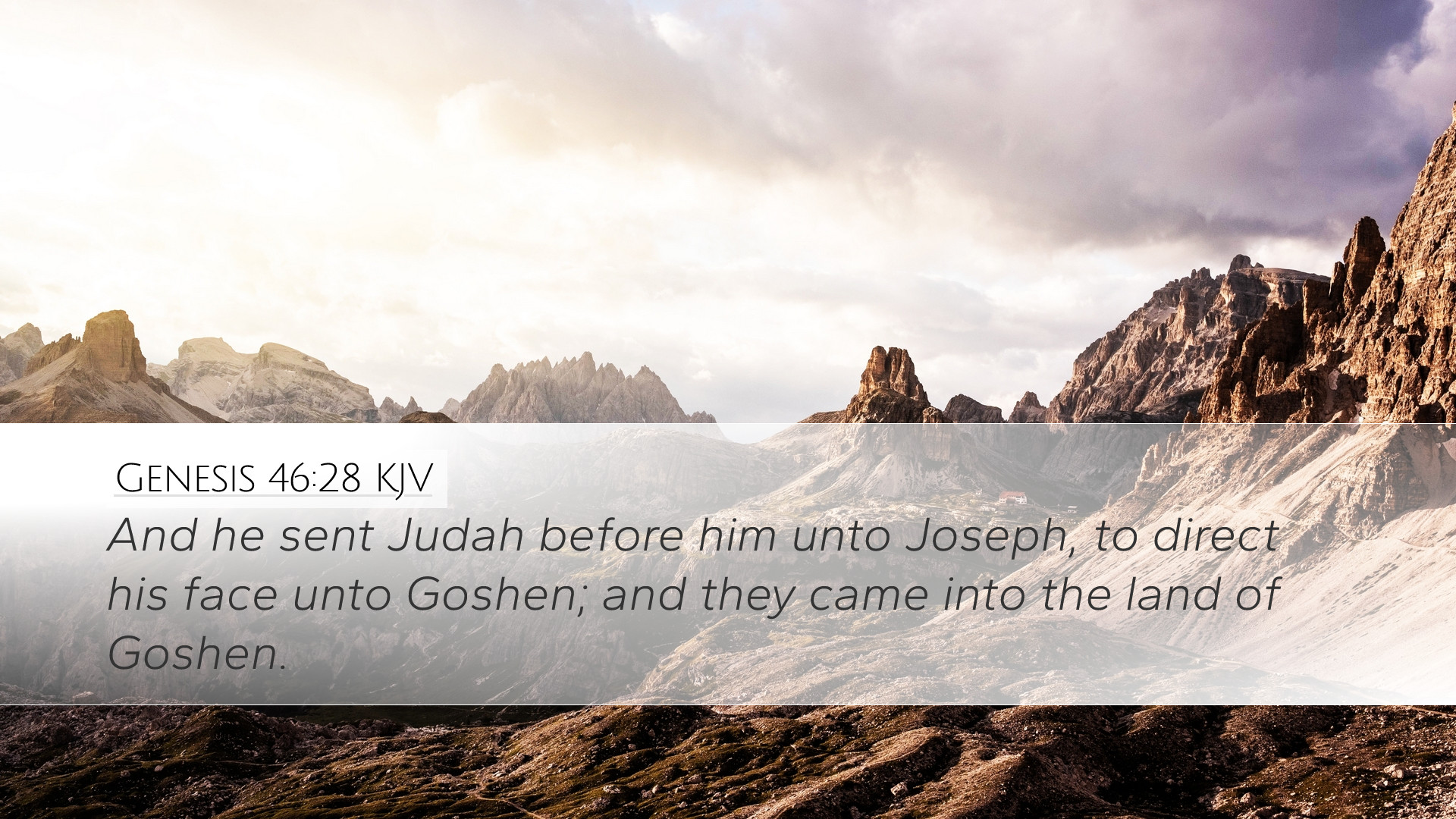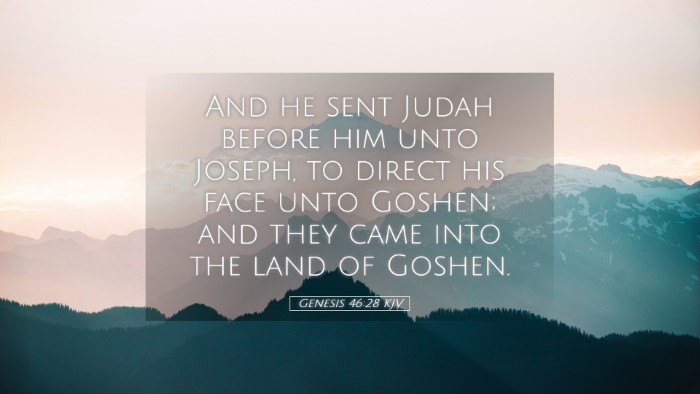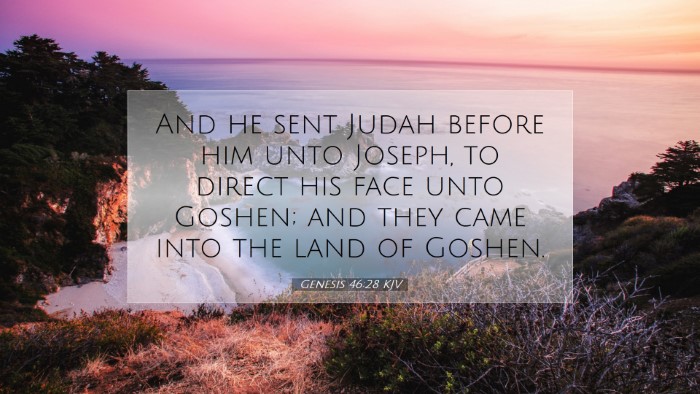Commentary on Genesis 46:28
Genesis 46:28 states: "And he sent Judah before him unto Joseph, to direct his face unto Goshen; and they came into the land of Egypt." This passage marks a pivotal moment in the narrative of the patriarchs, as Jacob, also known as Israel, prepares to reunite with his long-lost son Joseph. The action taken by Judah provides significant theological and historical implications.
Contextual Overview
The setting of this verse unfolds within the broader context of Israel's migration to Egypt due to a severe famine in Canaan. The enactment of God's providential plan is evident as the family of Israel is drawn into the land of Egypt, which will play a crucial role in their future as a nation.
The Significance of Judah's Leadership
Judah's role as the one sent to lead the family into Egypt is noteworthy. Several commentators emphasize Judah's evolution from his earlier character flaws to becoming a responsible leader within the family:
- Matthew Henry describes how Judah, despite his past, emerges as a "beacon" for the family, reflecting both growth and responsibility.
- Albert Barnes highlights the importance of Judah's leadership, suggesting it indicates his ascension in the family hierarchy following his pivotal actions in earlier narratives, such as the story of Tamar.
- Adam Clarke notes that Judah's name, meaning "praise," signifies a potential for redemption and transformation for the entire family line.
The Direction to Goshen
The mention of Goshen carries multiple layers of meaning:
- It served as the best part of the land, suitable for pastoral life—an essential consideration for Jacob’s family, who were shepherds.
- Goshen was a strategic location that allowed the Israelites to flourish and multiply while remaining somewhat separate from Egyptian culture, which would be essential for their identity.
- Commentators like Barnes interpret this as God's providential provision for His people, illustrating how divine guidance often leads to physical sustenance.
The Spiritual Implications
This passage also reveals spiritual truths relevant to believers today:
- The act of sending Judah can be likened to God sending leaders among His people to guide and direct them during times of crisis.
- Joseph's anticipated reunion foreshadows the idea of reconciliation and forgiveness, paramount themes in the biblical narrative.
- The move to Egypt also symbolizes the experience of being in exile and the longing for a promised land, paralleling the believer's spiritual pilgrimage today.
Conclusion
Genesis 46:28 serves as a profound reminder of God's providence in the lives of His people. Through the character of Judah and the selected destination of Goshen, we witness a placing of hopes upon family and divine promise. For pastors, students, and scholars, these themes invite deep reflection on leadership, divine direction, and the restorative power of reconciliation in the continuity of God's redemptive history.
Reflections for Practitioners
As we reflect on this passage, consider the following points:
- Leadership and Responsibility: What qualities does effective leadership in your community reflect? How can you cultivate these attributes in yourself and others?
- Provision and Guidance: In times of need, how do we recognize God's provision? Are we mindful of the Goshen moments in our lives?
- Reconciliation: What steps can you take to foster reconciliation within broken relationships inspired by the narrative of Joseph and his brothers?


